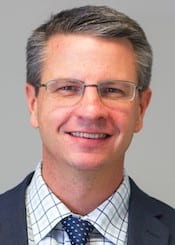Speaker: Dr. Robert Paul, Director, Missouri Institute of Mental Health
Curator’s Distinguished Professor, Department of Psychological Sciences, University of Missouri, St. Louis
Date: Wednesday, December 13, 2022, noon-1 p.m.
Location: Patient-Centered Care Learning Center, Room LC230
*Zoom option available
Register Here
Description
Machine learning applications in clinical neurosciences have emerged as a powerful, yet controversial approach to achieving highly personalized health care. Studies conducted in the fields of oncology, cardiology and other select disciplines provide foundational support for the utility of machine learning to facilitate the discovery of novel disease mechanisms, targets for therapeutic interventions and predictive models of individual outcomes. By comparison, the application of machine learning in clinical neuroscience has moved at a glacial pace. This presentation will describe the potential for machine learning to resolve longstanding knowledge gaps related to the most vexing neurologic and psychiatric conditions, as well as key challenges and methodologic/interpretative risks and recommendations for best practices. Outcomes from studies using ensemble machine learning will be emphasized.

About the Speaker
Dr. Paul’s research program is focused on mechanisms of brain dysfunction in health conditions that primarily impact brain structures located deep beneath the surface of the cerebral cortex. Dr. Paul’s research team has developed specific expertise in human immune deficiency syndrome (HIV), subcortical stroke and early life trauma as three conditions that impact the integrity of deep brain structures, including the white matter, basal ganglia and limbic structures. Neuropsychological methods and neuroimaging techniques are the primary research methods applied by Dr. Paul’s team to define behavioral and anatomical signatures of brain dysfunction in these conditions. Dr. Paul has a special interest in the application of these methods in resource-limited environments, and he has active research programs in South Africa, Africa, Thailand, Vietnam and Cambodia. He is a member of the HIV Cure Consortium, and he works closely with collaborators at the University of California San Francisco, Brown University, Yale University and Washington University.